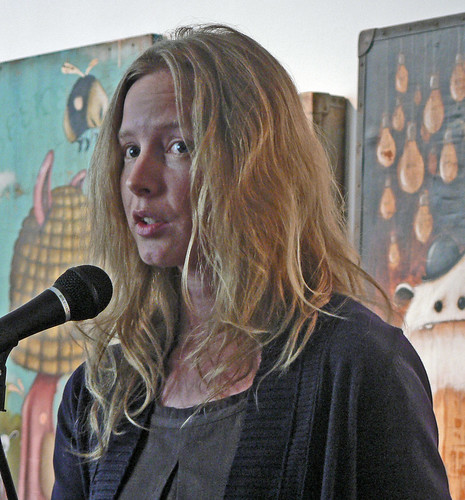
1. Make it clear at every opportunity: Both the so-called Pro-Life people and the so-called Pro-Choice people are pro-life people, one for the life of a fetus – a life that is still a notion, someone who does not exist yet, and the other for the life of a grown woman who has a history and is known and loved. Remind anyone who challenges this that both sides are pro-life, while the pro-life side behaves as if the pro-choice people are Satanic killers. There is the other irony that some of the Pro-Life people, besides verbally abusing women, don’t mind being pro-death, killing doctors and bombing clinics. But rather than be drawn into a them-versus-us game, it is sufficient to explain that both sides of the argument are pro-life.
2. Old age is not a disease. Old age is not the same as death. In fact, old age is the ripening and fulfillment of all a person has been for a lifetime.

In fact, old age is the ripening and fulfillment of all a person has been for a lifetime. There are endless advertisements, however, where people with worried faces are watching older relatives and friends as if they were looking for an admission of communist party membership. They are shown almost to have a certain of relief or satisfaction when an elder relative finally develops Alzheimer’s disease. How relieved they are to give their seniors the drug being advertised, and perhaps there is an added pleasure for them that the drug will torture these burdensome elders who go on clinging to life with numerous side effects, such as diaharrea, depression, heart failure. The worried relatives are finally content, having established old age as an illness, meaning that they, the younger, are not marked yet as people who will get sick and die. The youngest family members are also happy to see that the old will no longer get in the way of their youthful obsessions, frankly using the words “old person” as a description for something bothersome, repugnant, no longer fully human. Of course, if the older were not, in their maturity, more compassionate, they might let the younger know the great obstacle the young represent for civilized life. There is a constant outpouring of these commercial dramas, miniature sentimental films, worthy of satire.

3. Regretting my own time in the military during these decades of empire-driven wars, I must remember to be more understanding of veterans than I am of myself. Buffy Ste.-Marie’s UNIVERSAL SOLDIER, reminding every human in the service that they have made an existential choice to be there, is a message forever suppressed. But when I read the intelligent and sorrowful accounts of veterans who are also excellent poets, I know I need a more tolerant attitude toward them – and myself. There is also the most important fact – that many young men may be able to find no other work where they are except to join the military. That said, let me vent:
I forget the full list of terms used for war trauma over successive wars (“battle fatigue,” “soldier’s heart,” etc.). In World War I, the reality of the trauma was somewhat conveyed in the term “shell shock.” With the Iraq War, in the same way that they would not allow photographs of the coffins of the dead soldiers, it is infuriating that they disguise the effect of war with an abstraction, a series of initials, PTSD. How many translate PTSD each time they hear it into Post Traumatic Stress Syndrome. Does PTSD convey the weight of human tragedy? No, war must be antiseptic. I think we should all find some other way to translate those initials in some other way, such as the Pissed-Off and Totally Screwed Syndrome.

We are expected to respect the parents who still refuse to believe that the death of their children in Iraq was a sick joke they voted for, still repeating the reasons long proven as lies. We are expected to go along with the young, apolitical men for whom war was living out a fantasy of knights on crusade or the heroes of war movies. And when they come home with the Pissed-Off Totally Screwed Syndrome, and hate themselves for falling out of the war, feeling they are betraying their warrior buddies, or failing to fulfill the fantasy of being a hero, it is terrible that we don’t interrupt the parents who allow their children to see themselves as failures, reinforcing that self-hatred when the true cure would be for everyone to say, “Thank you for getting sick of killing people! I see that you are among the first members of a better human race. We are proud that you have become sickened with torture and killing. F--k manhood – Welcome to your humanity. We have enrolled you in one of our Peace Academies. We will be sending you out to high schools to teach young people the difference between movie comic book violence and the murder of actual human beings. You will teach them that political leaders are in no way their friends; that wars are not games, but the political manipulations of leaders who themselves would never get near a war zone.” How many join up without illusions, but simply because they need work? We really must have a bail-out for the young and desperate, forced into street crime or world crime – not, as in Germany, given the ability to choose an alternative service.









































